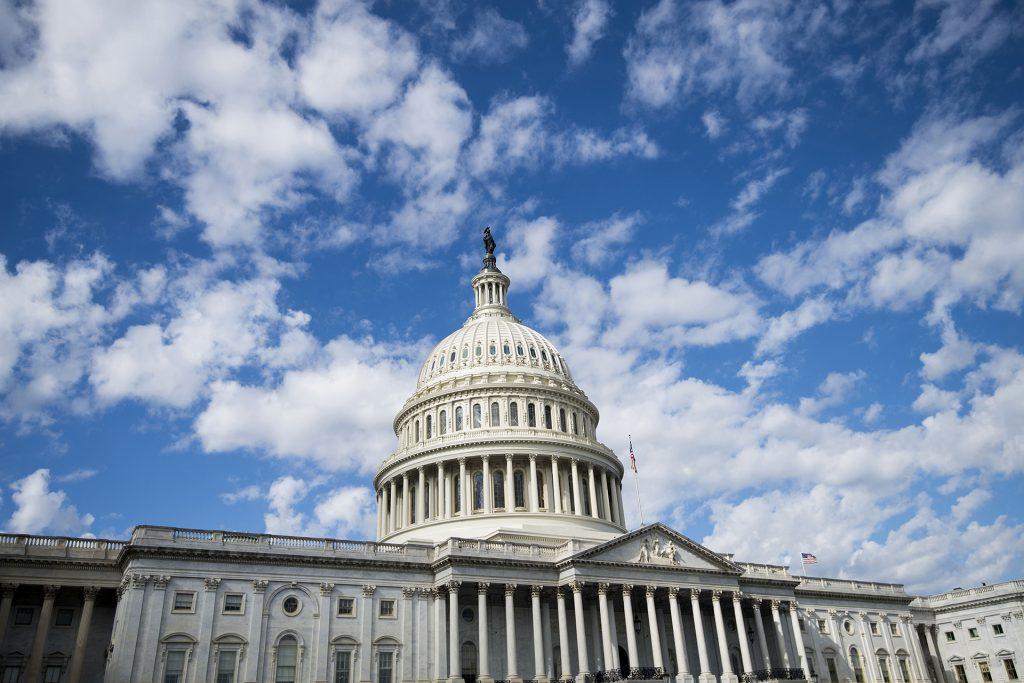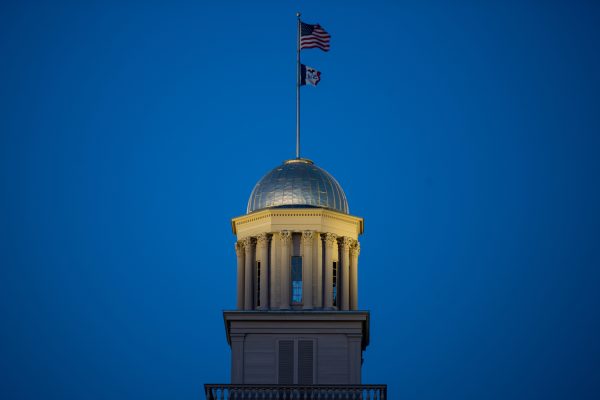Guest Opinion | No, professor Muller, not all Electoral College objections are the same
A University of Iowa College of Law student refutes a professor’s argument of comparing past Democrat objections to Republican ones in 2021.
The U.S. Capitol building on Wednesday, Oct. 25, 2017.
January 7, 2021
On the morning of Jan. 6, hours before assorted right-wingers seized the U.S. Capitol by force, Iowa College of Law Professor Derek T. Muller published a New York Times op-ed titled “Democrats Have Been Shameless About Your Presidential Vote Too.” Professor Muller, an election law expert who joined the Iowa faculty this fall, misses the mark by failing to consider just how shameless each party has been when objecting to the count of electors.
The article serves as an example of modern both-sides-ism, a popular rhetorical trick by which important distinctions are dissolved in a tangled morass of high-minded finger pointing. His focus on procedural mechanisms conceals the surrounding circumstances which render the objections of past Democrats immeasurably different than those brought by Republicans in 2021. Let’s walk through the trio of recent democratic objections Professor Muller employs as comparable to the current fracas.
In 2001, Democratic members of the House of Representatives objected to the counting of Florida’s electors. No senator joined the objection. It failed without debate.
In 2005, Democratic members of the House were joined by one senator, Barbra Boxer of California, in an objection to the counting of Ohio’s electors. Congress debated the objection for two hours and the objection was denied.
In 2017, Democratic members of the House of Representatives objected to the counting of multiple state’s electors. Vice President Joe Biden, after no senators joined in the vote, stated that “[the objection] cannot be entertained.” It failed without debate.
Now let’s look at the current Republican objections. On the morning of Jan. 6, over 100 Republican Representatives and 13 Republican Senators had voiced their intention to object to the electors of multiple states. These individuals were supported by the candidate and sitting president Donald J. Trump. Trump had not conceded the election to its victor, Joe Biden.
The surrounding anti-democratic activity is by now well known: Trump’s consistent refusal to commit to a peaceful transfer of power was followed by Secretary of State Mike Pompeo’s declaration that ‘[t]here will be a smooth transition to a second Trump administration.’ Then Trump tried to pry an additional 11,780 votes out of Georgia election officials.
The behavior was so reckless that it prompted all 10 living former Defense Secretaries to publish an op-ed clarifying that “there is no role for the U.S. military in determining the outcome of a U.S. election.”
On the morning of the vote, the president encouraged objection efforts at a rally in the nation’s capital that he and those in attendance would ‘cheer on our brave Senators and Congressmen and women’ who would object.’
So, no professor Muller, not all objections are the same.
–Andrew Ascher, University of Iowa College of Law student













